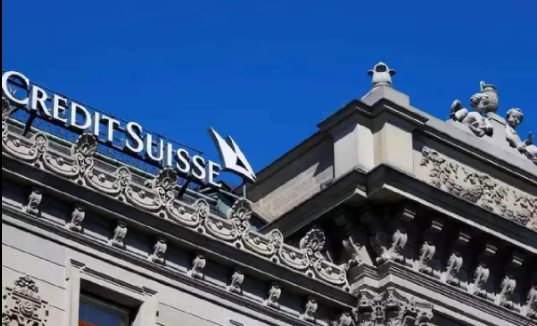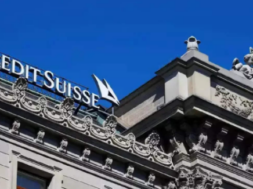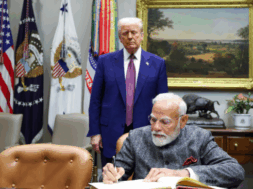
Credit Suisse: Now, fraud charges against a global investment banking company
Virendra Pandit
New Delhi: That nothing remains confidential for long in a networked economy of the planet was proved yet again when a consortium of journalists revealed that leading global investment banking company Credit Suisse has been allegedly indulging in dirty money received from criminals of all shades.
The 166-year-old Credit Suisse, based in Zurich (Switzerland) has, for over two decades, been claiming it has been cracking down on illegitimate funds. But data leaked by a bank insider revealed it turned Nelson’s eye to the incoming ill-gotten wealth from dozens of criminals, dictators, intelligence officials, sanctioned parties, and politicians, the media reported on Monday.
In a statement released on Sunday, the company, however, rejected the “allegations and insinuations” and said many of the issues raised were historical, some dating back to the 1940s. The banking behemoth has nearly 50,000 employees and 1.5 trillion Swiss francs in assets under management for 1.5 million clients.
German newspaper Suddeutsche Zeitung and the Organised Crime and Corruption Reporting Project (OCCRP), a network of journalists from around the world that analyzed the data, got leaked records on over 18,000 Credit Suisse accounts, the largest leak ever from a major Swiss bank, the reports said.
The investigation OCCRP coordinated brought together 47 media houses worldwide, including France’s Le Monde, The Guardian in Britain, The New York Times in the US, Italy’s La Stampa, Africa Uncensored in Kenya, and Argentina’s La Nacion. This investigative project, named “SwissLeaks” started after a leak of data to Germany’s Suddeutsche Zeitung newspaper last year.
Experts said many of these controversial clients should not have been allowed to bank at Credit Suisse at all.
The bank’s employees, both former and current, attributed the findings to a work culture that incentivized taking on risks to maximize profits. Switzerland’s strict banking secrecy laws usually silence insiders or journalists trying to expose wrongdoing within a Swiss bank. A Swiss media group could not participate in the global investigation into the Credit Suisse affair because of the risk of criminal prosecution, OCCRP found.
The expose appears only the tip of the iceberg from the bank’s overall holdings which unveiled dozens of dubious characters in the data, including an Algerian army general accused of torture, the children of a brutal Azerbaijani strongman, and a Serbian drug lord, called Misha Banana.
The account holders also include the family of an Egyptian intelligence chief who oversaw the torture of terrorism suspects for the CIA, an Italian accused of laundering criminal funds for the infamous ‘Ndrangheta criminal group, a German executive who bribed Nigerian officials for telecom contracts, and Jordan’s King Abdullah II, who held a single account worth 230 million Swiss francs ($223 million) at its peak, even as his country raked in billions in foreign aid, the media reports revealed.
Some Venezuelan elites, charged with plundering the state-controlled petroleum company, siphoned off hundreds of millions of dollars into Credit Suisse accounts when widespread looting from government coffers precipitated an economic collapse that forced six million people to flee the country and drove several others into near starvation. The bank kept its clients’ accounts open even as global media exposed corruption cases against many of them.
The investigation showed that Credit Suisse had violated international banking rules by holding funds linked to crime and corruption over several decades, Le Monde said, adding the sums identified as controversial amounted to over USD 100 billion (88 billion euros).
The leak included information on over 18,000 bank accounts dating back to the 1940s and up to the end of the 2010 decade. These accounts belonged to 37,000 individuals or companies, said the OCCRP. They involve mainly developing countries in Africa, the Middle East, Asia, and South America. Only one percent of the accounts concerned clients based in western Europe.
In its statement, Credit Suisse said: “The matters presented are predominantly historical, in some cases dating back as far as the 1940s, and the accounts of these matters are based on partial, inaccurate, or selective information taken out of context, resulting in tendentious interpretations of the bank’s business conduct.”
About 90 percent of the accounts reviewed were closed — or were in the process of being closed — before the press approached the bank, it added. And more than 60 percent of them had been closed before 2015.
Recently, Credit Suisse, Switzerland’s second-largest bank, was hit by a series of setbacks. In March 2021, it hit the headlines with the collapse of Greensill Capital in which it had committed some USD 10 billion through four funds. The implosion of the US fund Archegos cost it more than USD 5 billion, according to the media reports.













